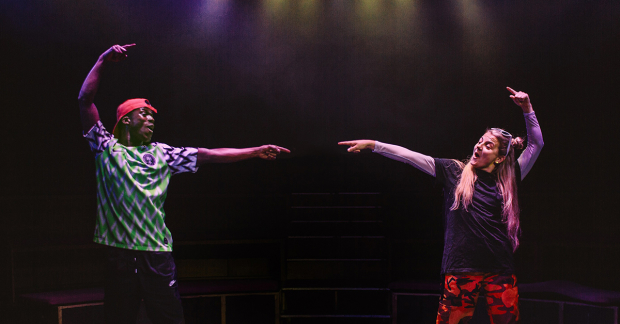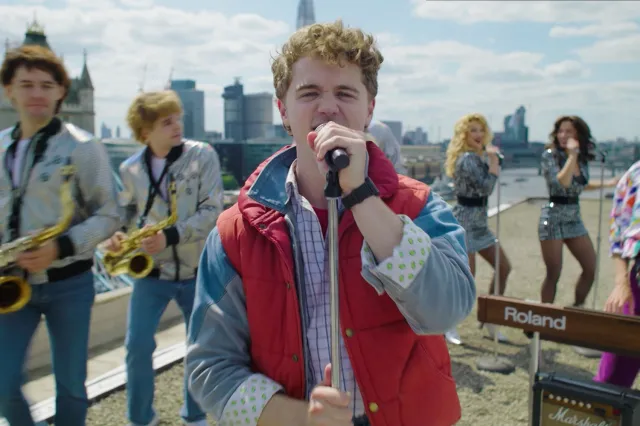Accessible theatre: How and why touring and emerging companies should make accessibility integral from the start
Emanpreet Bhatti from Paines Plough explains how young companies can think about access

© Rebecca Need Menear
There are plenty of high-tech, high-cost ways to make theatre accessible, but not everyone can afford to buy Google Glass for their captioning. That doesn't mean companies can't offer captioning to their audiences.
At Paines Plough, we offer individual closed captioning for all of the shows we have produced in our pop-up theatre Roundabout. Using Stagetext software and small tablets that clip to adjustable arms, captions are controlled by one person at a laptop. If you have a little funding to invest in some captioning equipment, this kind of set up means that multiple people can opt for closed captioning which they don't have to worry about controlling.
There are lots of low-tech, cheap options for small companies who want to embed accessibility in to their productions off the bat. Open captioning might seem like the simpler option, provided performances are indoors and a projector or TV screen are available. If so, open captioning can be as easy as creating a PowerPoint with the script typed out in sections and someone clicking through each line. It's not the most dynamic, but it does do the job, and it could be a good place to start.
Captioning doesn't have to be difficult or expensive
Closed captioning can be just as simple, by sending audience members who need it the script or PowerPoint in advance of the show so that they can read along on their device. For outdoor or roving shows, this could be a simple solution.
The point is, captioning doesn't have to be difficult or expensive, so there's no reason not to try it out and see what happens. There's no denying that inclusivity enriches art, and making work that is more accessible to all means that we are both opening up theatre as entertainment to wider audiences, as well as making the industry more inviting of those with access needs who want to consider arts careers as a viable option.
And even if nobody takes up the offer, by advertising captioned performances, you are educating your audiences on accessibility, encouraging awareness, and inviting conversation.
It's easy to overcomplicate things, but in reality the simplest methods are often the best for small companies. It won't hurt to incorporate captioning and other measures to make shows more accessible, but it may well do a lot of good.
If you're registered with EdFringe Participants this year, make sure you have a look at the panels that they host about accessibility.
At Fringe, every performance of Paines Plough's Daughterhood, On The Other Hand, We're Happy and Dexter and Winter's Detective Agency are available for captioning, along with a selection of performances from the rest of the Roundabout programme, which can be found here.
Please feel free to come to Roundabout at Summerhall if you would like to experience how our captioning setup works.
We will also be doing an informal, free captioning workshop for anybody who would like to learn how we do captioning at Paines Plough, on Wednesday 21 August at 9.00am to 9.30am in Roundabout at Summerhall. Please email [email protected] if you would like to come along to this.



















